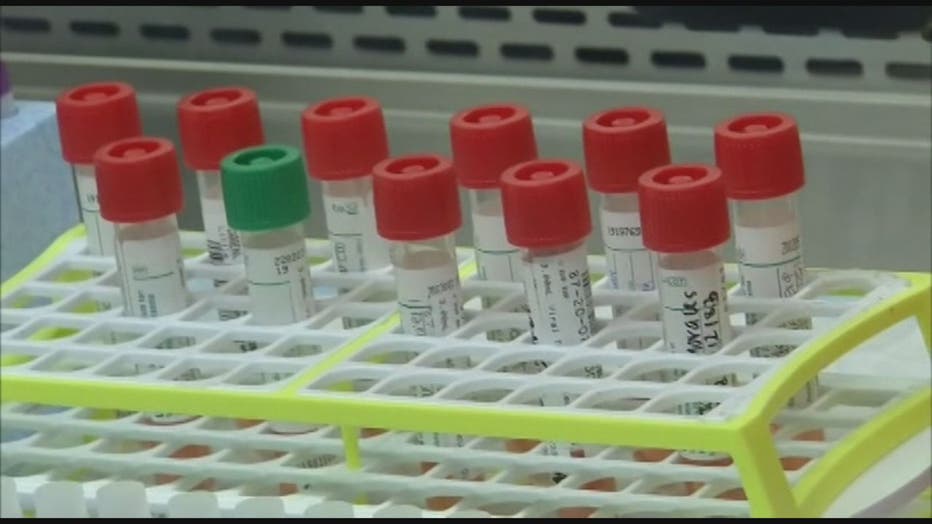Gov. Whitmer: We don't have enough Covid-19 tests here in Michigan
(FOX 2) - Gov. Gretchen Whitmer said in a phone interview with FOX 2 Monday morning that there are not enough Covid-19 tests in the State of Michigan.
"[For the federal government] to say there's testing in all states, that's accurate but it doesn't barely paint the right picture," she said. "We don't have enough tests. We don't have enough people to run the tests. We don't have enough of the testing machinery capability."

Gov. Whitmer announces temporary shutdown of bars, restaurants
Gov. Gretchen Whitmer says she'll be issuing an order on Monday that temporarily shuts down all Michigan bars and restaurants to 'eat-in' service only amid the coronavirus state of emergency.
The number of confirmed cases in Michigan is at 53 as of Monday morning, and dozens of other test results are still pending.
"It's something we've always known, that there'd be a point in time where we'd get overwhelmed. We've got a lag time now in terms of getting these tests processed. We know that there are a lot more people that are carrying this virus than we're able to detect in this moment, and that's why the community spread mitigation practices are so incredibly important," she continued.
Today is the first day K-12 schools across the state are shut down. Last week Gov. Whitmer last week also banned events or gatherings larger than 250 people; ordered restrictions on entry into care facilities and juvenile justice sites; and this morning she also announced she'll soon be issuing an order that shuts down all bars and restaurants in Michigan to 'eat-in' service.
"It's not just if you're not feeling well, it's - you have to assume every one of us is capable of carrying this and not knowing about it. And that's why our practices are so important to our own health, but to everyone else's too," she said.

Whitmer said she, too, is working remotely from home or the office during this state of emergency.
"It will be shorter if everyone does their part," she said.
If you do find yourself showing any flu or coronavirus symptoms - don't go straight to your doctor's office. That just risks making more people sick, officials urge. Call ahead, and ask if you need to be seen and where.
Symptoms for coronavirus COVID-19 include fever, coughing, and shortness of breath. These, of course, are similar to the common cold and flu.
Expect a common cold to start out with a sore or scratchy throat, cough, runny and/or stuffy nose. Flu symptoms are more intense and usually come on suddenly, and can include a high fever.
Symptoms of COVID-19 may appear more slowly. They usually include fever, a dry cough and noticeable shortness of breath, according to the World Health Organization. A minority of cases develop pneumonia, and the disease is especially worrisome for the elderly and those with other medical problems such as high blood pressure, obesity, diabetes or heart conditions.
RELATED: Is it the flu, a cold or COVID-19? Different viruses present similar symptoms
Right now there's one big difference between flu and coronavirus: A vaccine exists to help prevent the flu and it's not too late to get it. It won't protect you from catching the coronavirus but may put you in a better position to fight it.
To protect yourself, wash your hands well and often, keep them away from your face, and avoid crowds and standing close to people.

